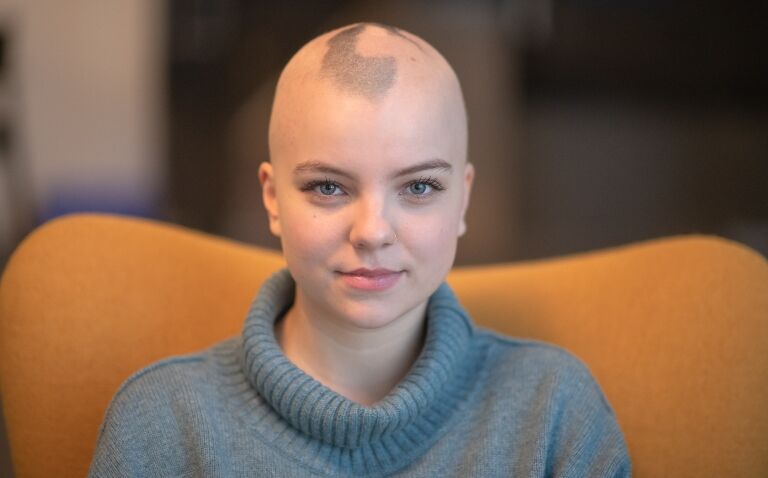The Janus kinase (JAK) inhibitor ritlecitinib has been recommended by NICE for the treatment of severe alopecia areata in adults and children aged 12 and over.
Treatment with ritlecitinib is a one-a-day capsule that has been shown in clinical trials to reduce inflammation and hair loss at the follicle for up to two years, the final draft guidance says.
The NHS approval of the treatment for people aged 12 years and older comes after an initial rejection by the committee in September.
NICE said the position had changed after a public consultation, additional information from the drug manufacturer Pfizer and an improved discount on the cost of the medicine.
The list price of the drug is £949.41 per pack of 30 capsules but the details of the commercial agreement with the NHS is confidential.
In discussions, the committee noted there is no standard treatment for severe alopecia areata, and access to treatment varies widely. Hair loss can cause severe psychological distress.
Another JAK inhibitor, baricitinib, is licensed for severe alopecia areata in Great Britain but is not available for severe alopecia areata on the NHS, NICE said.
It is thought that up to 14,000 people with alopecia areata could benefit from the drug after the NICE recommendation.
Helen Knight, director of medicines evaluation at NICE, said: ‘Our committee heard how severe alopecia areata can have a significant impact on people’s health and quality of life.
‘I’m delighted that we are now able to recommend this innovative treatment, the first time a medicine for severe alopecia areata has been recommended by NICE for use in the NHS.
‘It is especially pleasing that we have been able to recommend ritlecitinib just 16 weeks after it was granted a licence by the Medicines and Healthcare products Regulatory Authority, demonstrating NICE’s commitment to getting the best care to patients fast.’
Sue Schilling, the chief executive of Alopecia UK, said the decision was a monumental day for those with the condition.
‘For far too long, patients with alopecia areata have gone without a licensed treatment option available via NHS pathways.
‘If new treatments are only available privately, it becomes a case of the “haves and the have nots”. This latest NICE recommendation will go some way to address this.’
But she said people with alopecia still face substantial barriers including difficulties in getting a dermatology referral from their GP, unacceptable dermatology waiting times, and even some NHS trusts making the decision not to allow dermatology appointments for alopecia patients.
She added: ‘There is no longer the excuse of there being no licensed treatment available. I urge key decision-makers within the NHS to keep referral pathways open for patients with alopecia areata.’
A version of this article was originally published by our sister publication Pulse.










